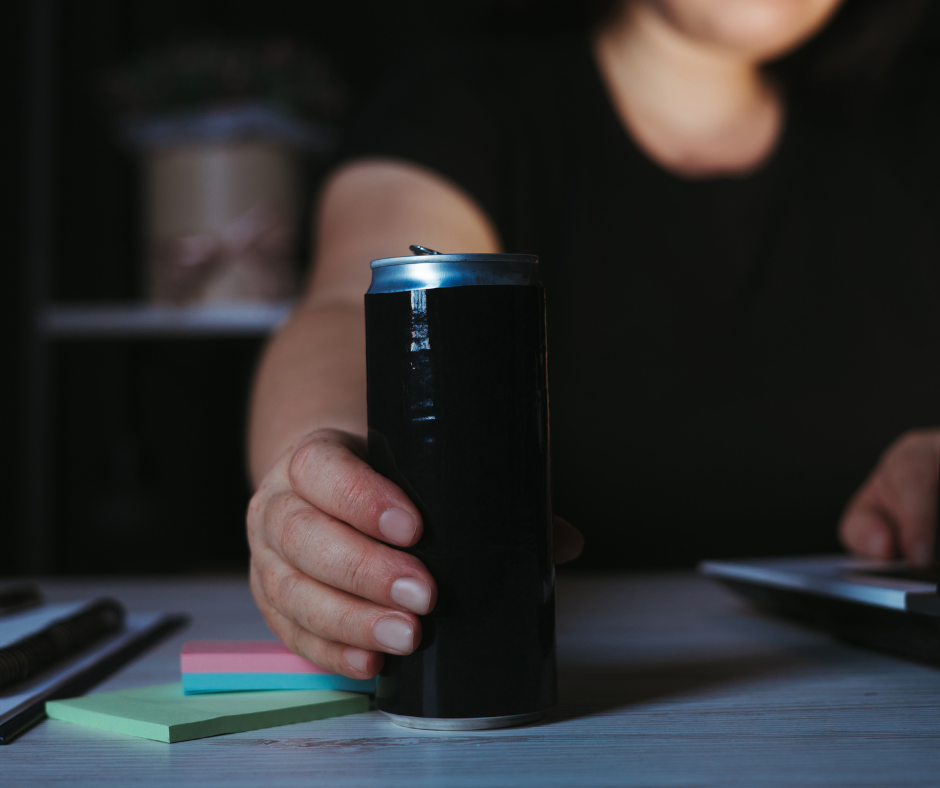
The Hidden Dangers of Energy Drinks: What You Need to Know
They promise a quick boost, improved focus, and enhanced performance, but behind the flashy labels and fun flavors, energy drinks have become a serious public health concern. Energy drinks have grown in popularity, especially among teens and young adults, but their potential health risks are often overlooked.
Here’s what you need to know about energy drinks and why moderation, or better yet, avoidance is important.
What’s in an Energy Drink?
Energy drinks typically contain high levels of:
- Caffeine (often much more than a standard cup of coffee)
- Sugar
- Taurine, guarana, and ginseng
- B vitamins and other herbal stimulants
These ingredients can cause a rapid jolt in energy, but they also place significant strain on the body, particularly the heart and nervous system.
You may feel more alert or awake at first, but the physical long-term effects can include:
- Increased heart rate and blood pressure
- Anxiety or jitteriness
- Dehydration
- Insomnia
- Digestive upset
In some cases, especially when consumed in large quantities or mixed with alcohol, these drinks can contribute to serious medical issues.
The Risks You Shouldn’t Ignore
Heart Problems
Energy drinks have been linked to irregular heart rhythms, elevated blood pressure, and, in rare cases, cardiac arrest. Individuals with underlying heart conditions may be especially vulnerable.
Mental Health Impact
Excessive caffeine consumption can worsen anxiety, mood swings, and sleep disorders—especially in teens, whose brains are still developing.
Caffeine Overdose
Too much caffeine in a short time can lead to caffeine toxicity, which may cause seizures, rapid heartbeat, and in extreme cases, death.
Mixing with Alcohol
Combining energy drinks with alcohol can mask the effects of intoxication, increasing the risk of alcohol poisoning, accidents, and risky behaviors.
Safer Alternatives for Sustained Energy
Instead of reaching for a can, consider healthier ways to maintain your energy levels:
- Stay hydrated with water or electrolyte-rich drinks
- Eat balanced meals with protein and complex carbs
- Get enough sleep: most adults need 7–9 hours per night
- Move regularly: even short walks can boost circulation and alertness
- Limit screen time, especially before bed, to improve sleep quality
Audra Lehman, FNP-C, Cameron Family Medicine, noted that some caffeine consumption is okay. But how much is too much? It is recommended that adults have 400 milligrams or less of caffeine daily. The American Academy of Pediatrics advises that no amount of caffeine or stimulant drinks are considered acceptable in the diets of children and adolescents. In the latest data from the CDC, it was noted that in 2011, 1,499 adolescents aged 12 – 17 years went to the emergency room for an energy drink–related emergency. With the increase in popularity of these drinks amongst teens, this number is likely even higher today.
If you or someone you know frequently relies on energy drinks to stay awake or alert, it may be time for a conversation about underlying fatigue, sleep issues, or stress. Cameron is here to help you explore safe and sustainable ways to improve your energy while also supporting your overall health and well-being.
©2025 Cameron Memorial Community Hospital
416 E. Maumee Street, Angola, IN 46703

Recent Comments